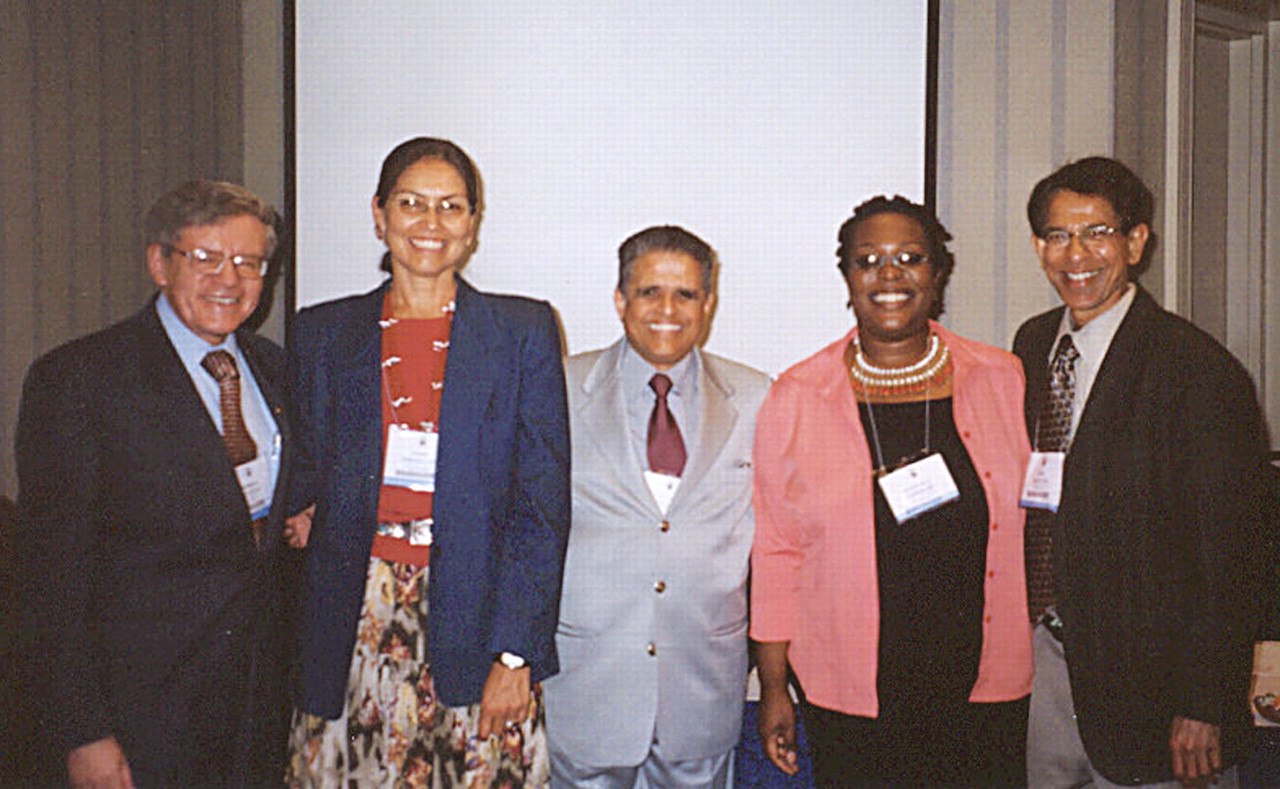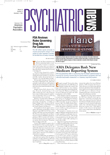As the number of elderly minorities with mental illness increases substantially over the coming years, so too will the demand for culturally sensitive mental health services by psychiatrists.
Unfortunately, each minority group faces barriers to comprehensive psychiatric treatment, which include lack of insurance, stigma, and the cost of care, according to a group of psychiatrists who treat and conduct research with patients from diverse ethnic backgrounds. They spoke at the APA Institute on Psychiatric Services in San Diego last month.
“Whether we like it or not, most of us are going to be geriatric psychiatrists within the next few decades,” said Dilip Jeste, M.D., Estelle and Edgar Levi Chair in Aging, director of the Sam and Rose Stein Institute for Research on Aging, and Distinguished Professor of Psychiatry and Neurosciences at the University of California, San Diego.
He pointed out that while there were about 6 million people over age 65 with psychiatric disorders in 1990, that number is expected to top 15 million in 2030.
Important issues to consider are how race and ethnicity play a role in risk for mental illness and whether an increased risk for a particular mental disorder is influenced by environment, genes, or the interaction between the two, he noted.
For instance, the proportion of people with vascular dementia living in India and Japan is higher than in Western countries, and the World Health Organization has declared that 2 of every 3 people with dementia will soon live in developing countries, Jeste said.
By contrast, elderly people living in rural India may have a lower risk for Alzheimer's disease than their counterparts in Western countries. Jeste cited the research of Mary Ganguli, M.D., M.P.H., who came to this conclusion after studying a sample of 2,700 elderly Indian villagers. She also found a low prevalence of APO-E4, a gene variant associated with Alzheimer's.
Cultural Differences in Care, Attitudes
Across cultures there are differences in the quality of health care, societal attitudes toward the elderly in general, and attitudes toward elderly people with mental illness, Jeste noted.
Older people living in some Asian communities “may have an advantage in the sense that the elderly tend to be better respected than they are in Western cultures.”
He described the concept of “successful aging,” which occurs across many cultures and is characterized by socialization, engaging in physical activity, adapting well to change, and being satisfied with life. Physical exercise and mental stimulation are essential to achieve successful aging, he said.
There is evidence that even older people living with physical illnesses and serious mental illness such as schizophrenia can achieve successful aging, he said, which flies in the face of dominant attitudes toward elderly people with mental illness in our culture—that they are “not worth wasting time and energy on” because they are in advanced stages of life, and nothing more can be done for them. “Societal and scientific attitudes toward aging need to change,” Jeste declared.
Stigma, Misdiagnosis Impede Treatment
A number of factors, including stigma and lack of insurance coverage, keep many African-American elderly from seeking mental health care, according to Warachal Faison, M.D., clinical director of the Alzheimer's Research and Clinical Programs at the Medical University of South Carolina and assistant director of the Institute for Research Minority Training on Mental Health and Aging.
“If you are African American and have a mental illness,” she said, “you are considered to be a double minority.” Faison is also vice chair of APA's Committee on Ethnic Minority Elderly.
African Americans who seek mental health services are more likely to be misdiagnosed with psychosis, less likely to be diagnosed with depression, and less likely to receive a selective serotonin reuptake inhibitor than are patients from other ethnic backgrounds, according to Faison.
Elderly African Americans are also more likely than whites to be misdiagnosed with dementia and Alzheimer's disease, she noted.
Faison cited research by J. Scott Roberts, Ph.D., of Boston University School of Medicine, who in 2003 found that African Americans were more poorly informed about Alzheimer's disease than were Caucasians. For instance, African Americans were much more likely than whites to believe that Alzheimer's is a normal part of aging.
Faison emphasized that there is a dearth of African Americans participating in clinical trials and an inadequate number of African-American investigators. A reversal of this trend will result in higher-quality treatment interventions and screening tools for older African Americans with mental illness, she noted.
According to Mary Roessel, M.D., a staff psychiatrist at the Santa Fe Indian Health Services Hospital and Clinic in Santa Fe, N.M., access to health care providers is difficult for many American-Indian elders. “Because most of our elders live on reservations, lack of transportation is a real issue for them,” she said.
Unlike in many Western cultures, older American Indians are respected and looked to as keepers of cultural knowledge and tradition, she noted.
However, it is not uncommon for American-Indian elders to be financially exploited, abused, or neglected by younger family members charged with caring for them.
While working with American-Indian elders who served in World War II and the Korean War, she has noticed a high prevalence rate of posttraumatic stress disorder. “Many had never sought help before and have been suffering for as long as 50 years,” said Roessel.
It is crucial that American Indians have access to culturally sensitive care and are provided with an interpreter, if necessary. At the hospital where she works, “there are native speakers who are available to conduct a mental status exam or psychiatric interview” in the patient's native language, Roessel said.
In American-Indian families, she explained, there is usually one family member who is designated to take care of an elderly relative and “will come to the office to offer more information about the patient or serve as an interpreter.”
Health privacy laws have sometimes been detrimental to treating American-Indian elders with mental illness, especially in cases where overly cautious clinicians “isolate patients” by barring family members from treatment sessions, which is not necessary, Roessel said.
It may also be beneficial to combine various aspects of American-Indian healing traditions with mental health treatment, she noted. ▪

